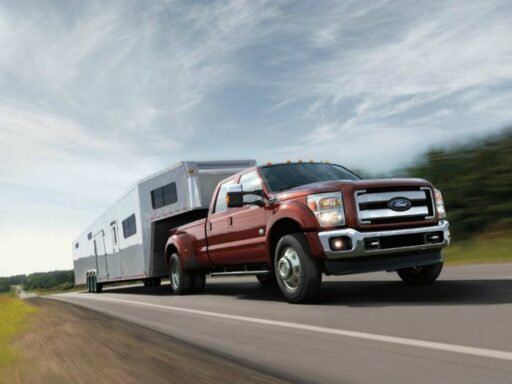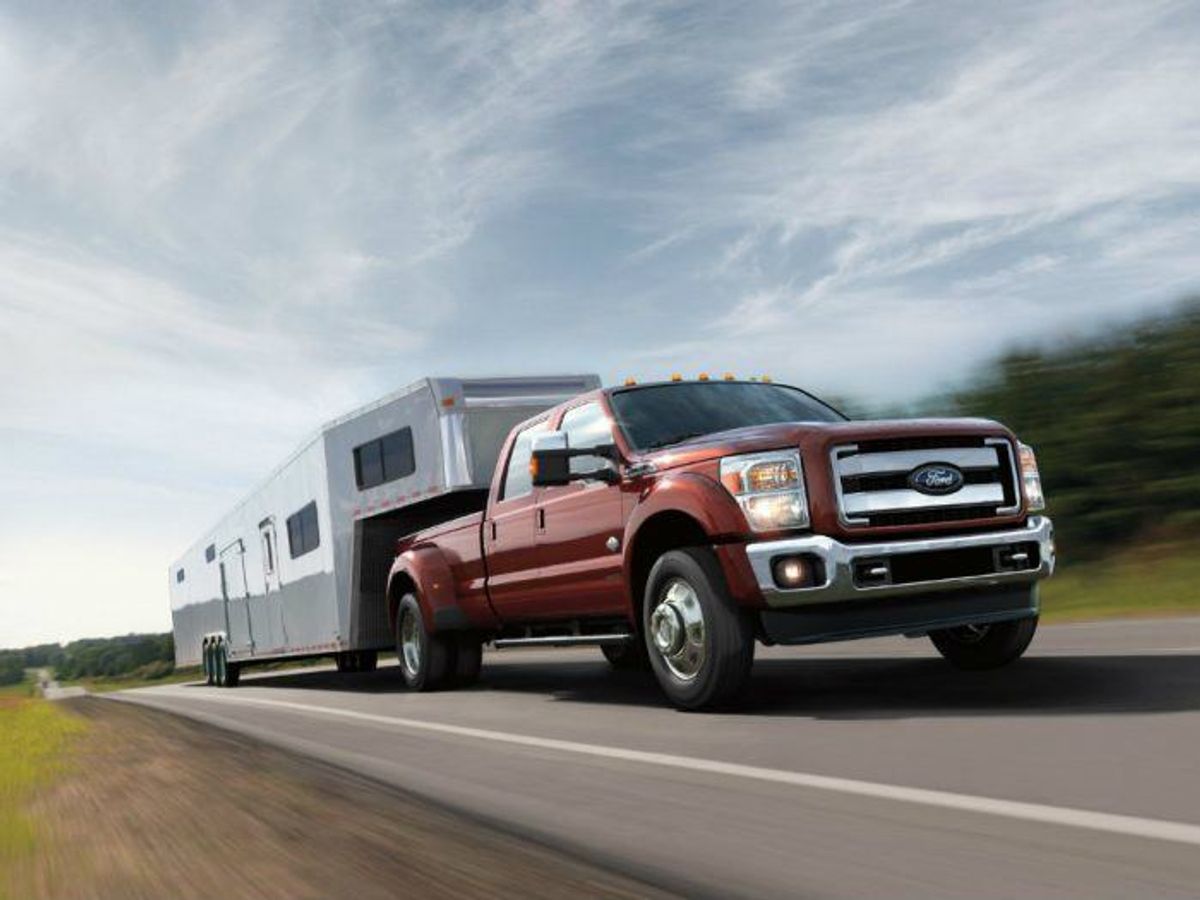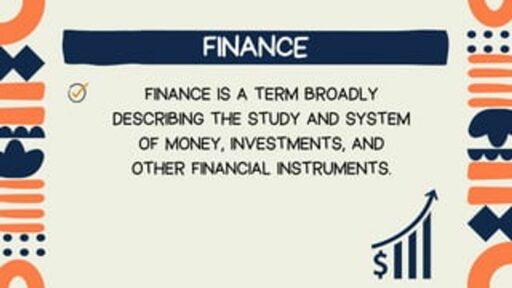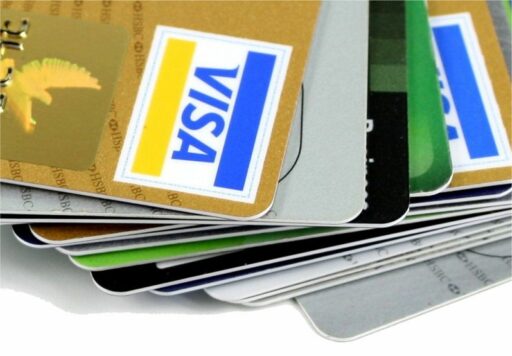Securing financing for a concession trailer or RV when you have bad credit can be daunting, but it’s not an insurmountable obstacle. This article aims to provide valuable insights and strategies for navigating concession trailer financing despite having a less-than-ideal credit score. By understanding the impact of bad credit on financing options, taking steps to improve your credit score, exploring alternative financing avenues, leveraging cosigners and down payments, and being fully aware of the terms and costs involved, you can move closer to achieving your dream of RV ownership.
Key Takeaways
- Bad credit affects RV financing by limiting loan approval chances and leading to higher interest rates, but understanding and improving your financial position can mitigate these consequences.
- Proactive credit score improvement, such as managing debts and seeking credit counseling, can enhance loan terms and prepare you for future financing opportunities.
- Alternative financing options, including personal loans, rent-to-own programs, and credit unions, offer viable paths to RV ownership for individuals with bad credit.
- Cosigners and larger down payments can significantly improve your chances of securing an RV loan by reducing the lender’s risk and demonstrating financial commitment.
- Before finalizing an RV purchase, it’s crucial to understand all associated costs, including fees, insurance, and maintenance, to ensure long-term financial sustainability.
Understanding the Impact of Bad Credit on RV Financing


The Role of Credit Scores in Loan Approvals
Your credit score is a crucial factor in the RV loan approval process. Lenders use this score to assess your creditworthiness and determine the risk associated with lending to you. A higher score can lead to more favorable loan terms, while a lower score may result in higher interest rates or even denial of the loan.
It’s imperative to review your credit report for any inaccuracies and to understand the significance of your credit score during negotiations. A good score can be a strong bargaining chip for better terms.
Here are some steps to consider before applying for an RV loan:
- Obtain a copy of your credit report and check for errors.
- Work on improving your credit score if necessary.
- Be prepared to explain any negative items on your credit history.
Remember, the interest rates for RV loans can vary significantly based on your credit score, with rates ranging from around 7 percent to as high as 36 percent for unsecured loans.
Consequences of Bad Credit on Interest Rates and Terms
When seeking financing for a concession trailer, bad credit can lead to higher interest rates and more restrictive terms. Lenders mitigate their risk by charging higher rates, which can significantly increase the overall cost of your RV loan.
- Interest Rates: Expect to pay a premium on interest, which varies based on your credit score and other factors.
- Loan Terms: Shorter repayment periods and potential for less favorable conditions.
- Down Payment: You may be required to provide a larger down payment to secure the loan.
Carefully consider the long-term financial impact of these terms, as they can affect your budget and financial stability for years to come.
It’s essential to shop around and compare offers from multiple lenders. While bad credit limits your options, there may still be competitive terms available if you take the time to look.
Assessing Your Financial Position Before Seeking Financing
Before embarking on the journey to secure financing for a concession trailer, it’s crucial to take a hard look at your financial landscape. Understanding your budget constraints and long-term financial goals is the first step in ensuring that you don’t overextend yourself with a financing agreement that could jeopardize your financial stability.
- Evaluate Your Budget: Can you realistically afford the monthly payments, maintenance, and insurance costs associated with a concession trailer?
- Credit Score Check: Obtain and review your credit report for accuracy. A higher credit score can lead to better loan terms.
- Financial Goals: Ensure that the financing plan aligns with your long-term financial objectives and doesn’t impede your progress.
When negotiating loan terms, a comprehensive understanding of your credit score and financial history is indispensable. This knowledge not only influences the terms you’re offered but also equips you with the information needed to negotiate effectively or to provide justifications for any credit blemishes.
Strategies for Improving Your Credit Score Prior to Loan Application


Effective Debt Management and Timely Payments
Managing your debt effectively and ensuring timely payments are crucial steps towards improving your credit score. Creating a budget and sticking to it can help you prioritize your debts and allocate funds appropriately. Consider strategies like the debt snowball or avalanche methods, which focus on paying off debts from smallest to largest or tackling those with the highest interest rates first, respectively.
By re-leveraging what you already have, you can amplify wealth accumulation and manage debts more efficiently.
It’s also essential to understand the implications of loan terms. Opting for extended loan terms might seem beneficial due to lower monthly payments, but it can lead to paying more interest over time. Striking a balance between affordable payments and a reasonable loan term is key.
Lastly, exploring additional income streams, such as a side hustle, can provide extra funds to accelerate debt repayment. This proactive approach can significantly reduce your debt burden and improve your creditworthiness.
The Benefits of Credit Counseling Services
Credit counseling services offer a structured approach to managing personal finances and improving credit scores. These services provide personalized advice on how to handle debt, including tips for credit card use and paying off student loans. By understanding credit cards and their impact on financial stability, individuals can make informed decisions that contribute to long-term success.
- Review your credit report for errors and dispute any inaccuracies.
- Create a realistic budget to track income and expenses.
- Develop a strategic plan to pay down debts, starting with those carrying the highest interest rates.
Credit counseling can be a pivotal step in regaining financial control and laying the groundwork for a healthier credit profile. It’s a proactive measure that can lead to better financing options for major purchases like an RV.
Engaging with a credit counselor can also help you navigate the complexities of financial planning, ensuring that you’re equipped with the knowledge to maintain a stable financial future.
Building a Stronger Credit Profile for Future Financing
Building a robust credit profile is essential for securing favorable financing terms in the future. Improving your credit score is a strategic investment that can lead to lower interest rates and better loan conditions. Here are some practical steps to enhance your creditworthiness:
- Pay bills on time: Late payments can significantly harm your credit score.
- Reduce debt levels: Lowering your debt-to-income ratio can make you a more attractive borrower.
- Rectify credit report errors: Ensure your credit report is accurate by disputing any inaccuracies.
By adopting these measures, you not only improve your chances of securing an RV loan but also position yourself for more advantageous financial opportunities across the board.
Remember, a strong credit profile doesn’t happen overnight. It requires consistent effort and financial discipline. Start by setting short-term goals, like paying down a specific debt, and then expand to broader strategies such as diversifying your credit mix. This proactive approach will serve you well when you’re ready to explore RV financing options.
Exploring Alternative Financing Options for RV Purchase


Navigating Personal Loans with Bad Credit
When traditional RV financing is out of reach due to bad credit, personal loans emerge as a noteworthy alternative. Banks and credit unions offer personal loans that can be used to fund an RV purchase, even for those with less-than-ideal credit histories. It’s crucial to scrutinize the terms and interest rates, as they can vary significantly based on your credit profile and income.
While personal loans can provide a lifeline, they often come with higher interest rates for bad credit borrowers. This underscores the importance of comparing offers to find the most favorable terms.
Here are some steps to consider when seeking a personal loan with bad credit:
- Research various lenders to understand their specific requirements for loan approval.
- Obtain pre-qualification quotes to gauge potential interest rates and terms without impacting your credit score.
- Evaluate the total cost of the loan, including any origination fees or prepayment penalties.
Remember, RV dealerships may also offer financing options tailored to buyers with bad credit. These dealerships have insights into the RV market and might provide more lenient lending criteria. However, always approach dealership financing with caution, ensuring you fully comprehend the loan’s terms and conditions before committing.
Rent-to-Own Programs: A Viable Solution?
Rent-to-own programs for RVs present an alternative path to ownership, especially for those with bad credit. These programs often feature low monthly payments, which can be particularly appealing if you’re working with a tight budget or have financial constraints.
The flexibility of rent-to-own agreements is another significant benefit. Payment plans can often be tailored to match your financial situation, providing relief from the strict schedules that traditional loans demand. Additionally, the chance for guaranteed approval and the absence of credit checks make these programs accessible to a wider audience.
While rent-to-own options can be enticing, it’s crucial to consider the total cost over time. The convenience of lower payments may lead to higher overall expenses, so evaluating the long-term implications is essential.
Before committing to a rent-to-own program, consider the following points:
- Assess the tenure, monthly payments, and terms flexibility.
- Read the fine print to understand all fees and penalties.
- Verify the privacy policy to ensure your personal information is protected.
Remember, rent-to-own programs are not one-size-fits-all. They can be a lifeline for some, but for others, the potential long-term costs and fees may outweigh the immediate benefits.
The Advantages of Seeking Financing from Credit Unions
Credit unions stand out as a compelling choice for RV financing, especially for those with bad credit. Unlike traditional banks, credit unions are member-owned institutions, which often translates to more favorable terms for their members. They are known for providing competitive interest rates and more flexible loan terms, which can be particularly beneficial when your credit score isn’t at its best.
- Personalized Service: Credit unions typically offer a more personalized approach to service, which can be advantageous when you need to discuss your financial situation and loan options.
- Flexible Terms: Members may find that credit unions provide more lenient terms, which can be crucial for buyers with bad credit.
- Competitive Rates: Often, credit unions can offer lower interest rates compared to traditional banks, which can result in significant savings over the life of the loan.
When considering credit unions for RV financing, it’s essential to compare the offerings of different institutions. Look beyond the interest rates and evaluate the loan terms, fees, and any additional charges to ensure you’re getting the best deal possible.
The Role of Cosigners and Down Payments in Securing RV Loans
How a Cosigner Can Enhance Your Loan Eligibility
Having a cosigner when applying for RV financing can be a game-changer, especially if you’re dealing with bad credit. A cosigner with a strong credit history can provide the assurance lenders need to mitigate the risk associated with your lower credit score. This partnership can lead to more favorable loan terms and a higher chance of approval.
When considering a cosigner, it’s crucial to have a clear agreement on the responsibilities and potential risks involved. Both parties should be fully aware of the financial commitment and the impact on the cosigner’s credit if repayments are not made as agreed.
Here are some key points to keep in mind about cosigners:
- A cosigner must have a good credit score and a stable financial history.
- The cosigner agrees to take on the legal obligation to repay the loan if you default.
- This arrangement can lead to better interest rates and loan terms.
- It’s essential for the cosigner to understand the full extent of their liability.
Increasing Down Payment to Offset Credit Risk
Making a larger down payment when purchasing a concession trailer can be a strategic move, especially for those with bad credit. By offering more money upfront, you demonstrate to lenders a commitment to the investment and a lower risk profile. This can lead to more favorable loan terms and potentially lower interest rates.
- Save for a down payment: Aim to save at least 10-20% of the total purchase price. This can significantly reduce the amount you need to borrow.
- Separate savings account: Consider setting up a dedicated account for your RV down payment to ensure disciplined savings.
- Larger initial investment: A higher down payment may also mean you’ll have a smaller loan balance to repay over time, which can save you money on interest.
A substantial down payment not only improves your chances of loan approval but can also provide you with more negotiating power when discussing terms with lenders. It’s a proactive step that can make a significant difference in the financing process.
Negotiating Terms with Lenders: A Practical Approach
When entering negotiations with lenders, it’s crucial to be well-prepared and informed about your financial situation. Understanding your credit score and history is vital, as these factors significantly influence the terms you’ll be offered. If your credit is strong, you might secure a lower interest rate; however, with less-than-ideal credit, be ready to justify your loan repayment capability.
As you negotiate, aim for a win-win scenario. Clear communication of your financial objectives and a willingness to compromise can lead to more favorable loan conditions.
Remember to familiarize yourself with the lender’s specific criteria, such as credit score minimums and required down payments. This knowledge can prevent futile applications and guide your negotiation strategy.
- Understand collateral requirements
- Consider unsecured loans
- Focus on the 5 C’s of credit
- Pay off loans promptly to avoid high interest rates
Final Considerations Before Signing on the Dotted Line


Understanding the Fine Print: Fees, Penalties, and Obligations
When considering concession trailer financing, it’s essential to read the small print of any loan agreement. This section often contains critical information about additional costs that can significantly impact the total expense of your loan. For instance, some lenders may charge origination fees for processing your loan or prepayment penalties if you decide to pay off your loan early. These fees can vary widely between lenders, so it’s important to compare them when shopping for the best financing options.
Hidden fees and charges are not uncommon in the world of financing. Being vigilant and asking questions about any unclear charges can help you avoid unexpected expenses.
Furthermore, late payment fees are another aspect to watch out for. Dealerships and lenders may have strict policies and can impose hefty penalties for missed payments. It’s also worth noting that failing to maintain the RV according to the lender’s standards could incur additional charges. Always ensure you understand all the terms and conditions related to fees, penalties, and your obligations under the loan agreement.
Insurance and Maintenance Costs: Planning for the Long Term
When considering the purchase of a concession trailer, it’s crucial to plan for the long-term financial implications, particularly in terms of insurance and maintenance costs. Budgeting for these expenses is essential for the longevity and reliability of your RV. Maintenance costs can include routine oil changes, tire rotations, and inspections, which are necessary to keep your RV in top condition.
- Maintenance: Regular upkeep to prevent breakdowns.
- Insurance: Protection against accidents and theft.
- Campground Fees: Costs for parking your RV at campsites.
Remember, the true cost of RV ownership extends beyond the initial purchase price and financing. It encompasses ongoing expenses that can impact your financial stability if not properly managed.
Additionally, it’s important to consider how these costs align with your long-term financial goals. Stretching your budget too thin on maintenance and insurance could lead to financial strain, so ensure that your rent-to-own agreement or financing plan doesn’t derail you from your future objectives.
Post-Purchase Support and Resources for RV Owners with Bad Credit
After securing an RV loan with bad credit, it’s crucial to stay informed and prepared for the journey ahead. Maintaining a good standing on your RV loan is essential for improving your credit over time. Regularly reviewing your credit report can help you track your progress and catch any errors. Remember, you’re entitled to a free copy of your credit report from all three bureaus once every 12 months from AnnualCreditReport.com.
- Stay connected with your lender or finance manager for ongoing support.
- Join online communities or forums for RV owners to share experiences and advice.
- Utilize budgeting tools and apps to manage your RV-related expenses effectively.
It’s not just about the purchase; it’s about the full ownership experience. Planning for maintenance, insurance, and other long-term costs will ensure that your RV adventure doesn’t become a financial burden.
Lastly, don’t hesitate to seek financial advice if you’re struggling with repayments. Many organizations offer free or low-cost counseling to help you stay on track and protect your investment.
Conclusion
In summary, navigating concession trailer financing with bad credit is undoubtedly challenging, but it is not an insurmountable obstacle. By understanding the significance of your credit score, exploring diverse financing options, and seeking ways to improve your financial standing, you can increase your chances of securing a loan. Whether it’s through traditional lenders, credit unions, or alternative financing routes, there are viable paths to ownership. Remember, persistence and informed decision-making are key. With the right approach and a bit of determination, you can turn your RV dreams into reality, even with less-than-perfect credit.
Frequently Asked Questions
Can I finance an RV with bad credit?
Yes, you can finance an RV with bad credit by exploring various financing options such as personal loans, rent-to-own programs, or seeking loans from credit unions. It may require more effort and higher interest rates, but it’s not impossible.
What steps can I take to improve my credit score before applying for an RV loan?
To improve your credit score, focus on effective debt management, make timely payments, reduce your debt-to-income ratio, and seek advice from credit counseling services to build a stronger credit profile.
Are there any alternative financing options for purchasing an RV with bad credit?
Yes, alternative financing options include obtaining a personal loan with bad credit, considering rent-to-own programs, or approaching credit unions that may offer more flexible financing terms.
How can a cosigner help me secure an RV loan with bad credit?
A cosigner with a good credit history can enhance your loan eligibility by providing additional assurance to lenders, potentially leading to better loan terms and lower interest rates.
What should I look for in the fine print when financing an RV with bad credit?
Pay close attention to fees, penalties, and obligations outlined in the loan agreement. Understand the terms of the loan, including the interest rate, repayment schedule, and any potential penalties for early repayment or default.
How important is the down payment when financing an RV with bad credit?
A larger down payment can offset the credit risk for lenders, leading to improved chances of loan approval and potentially better loan terms. It demonstrates your commitment and reduces the lender’s risk.





